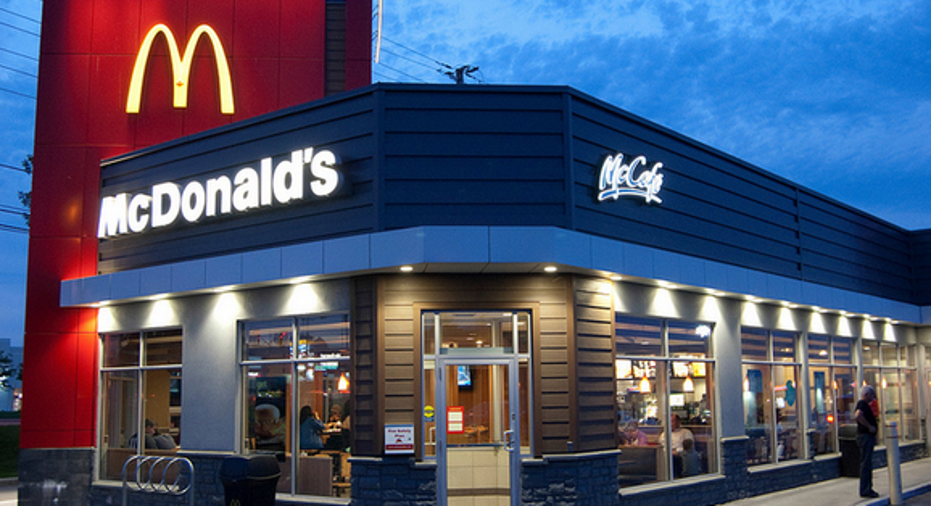Here's Why I'm Not Sold On McDonald's Recovery Yet

We all love a comeback story, even to the point where we try to write the story when it doesn't exist. With that, Wall Street analysts and market participants have found their newest protagonist: McDonald's . After years of struggling with flat/negative same store sales figures, the fast-food proprietor shocked followers with a global same-restaurant figure of 4% (constant currency) in the recently reported third quarter of FY 2015.
As a result, and ebullience following former CEO Don Thompsons' departure announcement in late January, shares of the company are up 22% versus the S&P 500's gain of nearly 2% year to date. Investors seem to be betting big on Steve Easterbrook's turnaround plan. As "shareholder friendly" as that plan is, I'd personally like to see more green shoots as it relates to the company's operations before betting big on the Golden Arches again. Here's why.
Will breakfast help or hurt same-store-sales?First, it's important to reiterate McDonald's 4% same-store-sales figure was a solid showing. For example, during the same period, competitor Burger King reported 2.4% and Wendy's reported 2.9% same-store-sales growth. On the surface, it seems entirely possible this continues in the short term, as the company's all-day breakfast will show up in next quarter's results.
However, a bump in same store sales because of all-day breakfast isn't as cut and dry as first advertised. As breakfast items typically have lower per item costs, it's possible the increase in foot traffic will be offset -- at least partially -- by lower transaction size. The key is whether breakfast is driving new foot traffic into the restaurants or simply changing the buying habits of consumers that would already have visited a McDonald's in the first place.
One quarters' results are not indicative of a trend. In the past two years, McDonald's has reported just one strong fiscal quarter of same-store sales. Personally, I'm not willing to declare McDonald's a turnaround story after one strong quarter, even if the company expects positive fourth-quarter comparable sales.
After all-day breakfast, what's next?Easterbrook has announced an ambitious turnaround plan that is, arguably, very shareholder friendly. MCD to issue $30 billion in debt which will be distributed to shareholders over the next three years. By issuing debt, refranchising company-owned restaurants, and cutting $500 million in general and administrative expenses annually the company hopes to boost the value of its existing business. Alas, the problem is these initiatives is that they do nothing to increase demand for the McDonald's products. After all-day breakfast, which I just explained may not be a huge revenue-growth driver either, what strategies does the company have to grow its top line?
An ambitious plan for the restaurant is the company's Create Your Taste concept. Essentially employing a store-within-a-store model, the Create Your Taste menu employs a touchscreen concept to let consumers choose premium burgers and premium ingredients to compete with other premium-ingredient, premium-cost burger spots like Shake Shack.
While the premium concept was announced with much fanfare, execution will be key. For a majority-franchised company, a full rollout of premium kiosks and processes are more difficult to implement. In addition, the company is fighting years of perception of lower-quality food, making it tough for a concept directly rebutting that perception to succeed.
All in all, I'm encouraged by McDonald's last reported quarter's same-store-sales results. That being said, I'm taking a wait and see approach regarding its operational results. There's only so long a company can increase cash return to shareholders and ignore fundamentals -- eventually they'll have to show consistent improvement in the underlying business.
The article Here's Why I'm Not Sold On McDonald's Recovery Yet originally appeared on Fool.com.
Jamal Carnette has no position in any stocks mentioned. The Motley Fool has no position in any of the stocks mentioned. Try any of our Foolish newsletter services free for 30 days. We Fools may not all hold the same opinions, but we all believe that considering a diverse range of insights makes us better investors. The Motley Fool has a disclosure policy.
Copyright 1995 - 2015 The Motley Fool, LLC. All rights reserved. The Motley Fool has a disclosure policy.



















